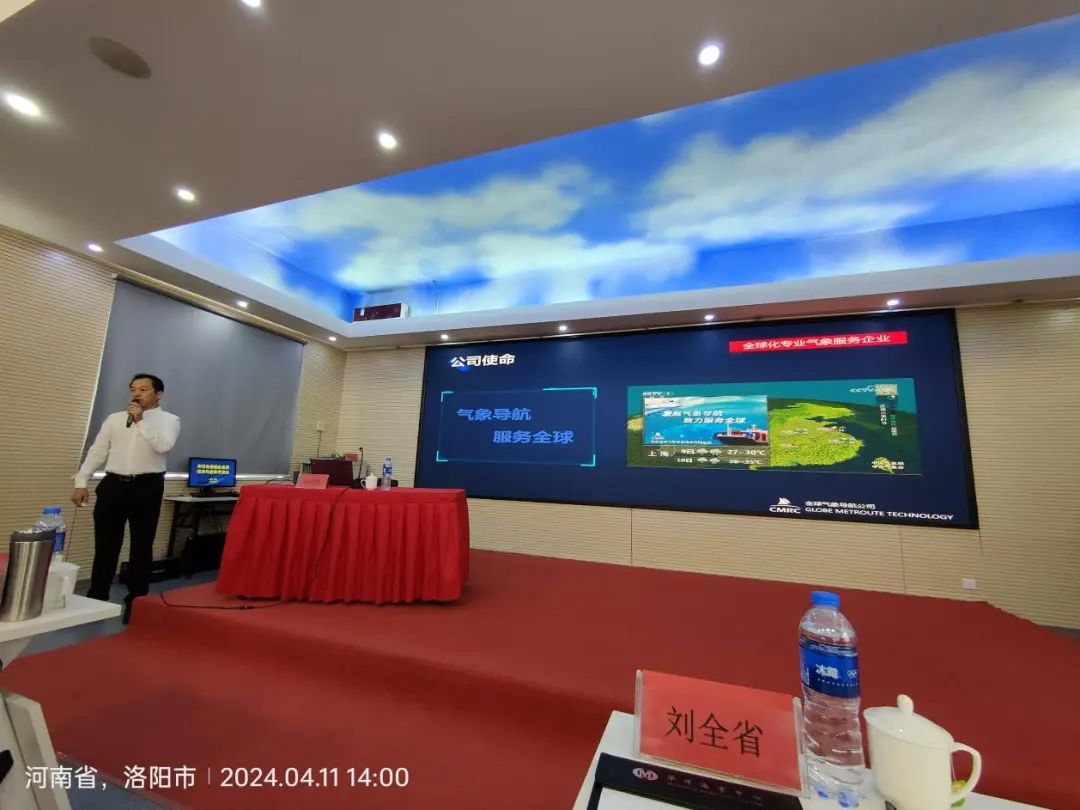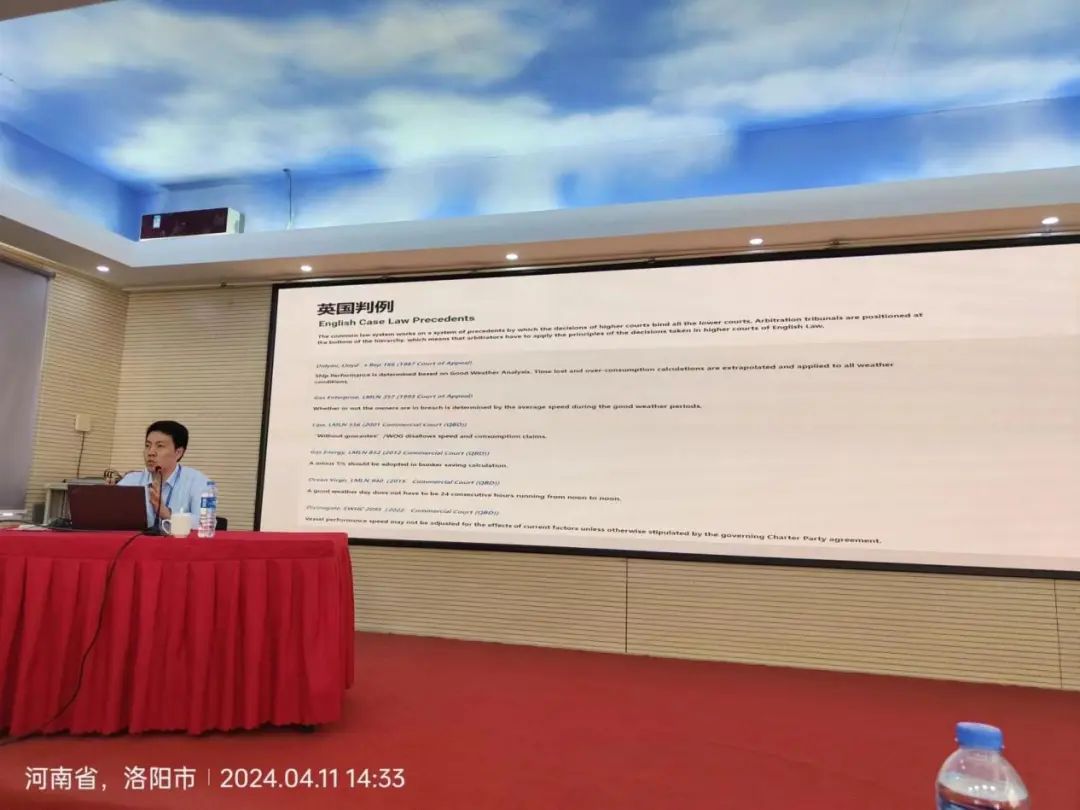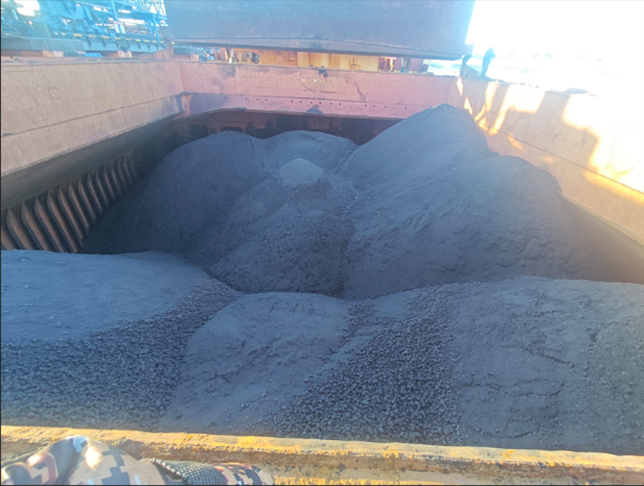航速索赔商务抗辩中英国判例的援引
—江苏远洋散货运输公司运营部 刘全省船长
摘 要:
在期租合同下,船舶在实际航行中可能因多种原因产生航速和油耗方面的争议,例如受到风、洋流、污底、燃油质量或者机器方面等因素的影响。随着各种争议的出现和解决,租船合同对此约定越来越明确,船东也可以通过对各项可能产生争议的标准进行明确,以避免争议。英国高院的判例对于航速索赔问题也提供了指导,因此,我们要培养商务意识,从租约谈判到船长执行等各方面都要严谨,提高全球竞争力,而不像国内公司有的靠老总一个电话来协调。下面本文对涉及的重要问题对应的案例进行一一介绍。

一、期租合同关于航速油耗的规定
好天气的含义在很多人潜意识里,好天气的含义就是4级风3级浪,然而法律上对于“好天气”的定义并不是这样。在法律上,只要符合租船合同所要求的,可以拿来评估船舶航速油耗的,那么都是属于“好天气”。因此,“好天气”并非仅仅针对4级风3级浪,还包括流、涌,甚至还包括水温,船舶吃水以及航行区域的限定;如果违反了这些限定,那么就不属于租船合同中可以用来评估船舶航速油耗的“好天气”,需要相应地扣除不算。
通常的条款:"ALL SPEED/CONS AT SEA BASIS GOOD WEATHER AND BEAUFORT SCALE NOT EXCEEDING 4, CALM SEA DOUGLAS SCALE NOT EXCEEDING 3, NO ADVERSE CURRENT"。
相对比较缜密的条款:"SPEED AND CONSUMPTION ARE BASIS GOOD WEATHER CONDITIONS DEFINED AS MAX BF4, DSS 3 (MAX SIGNIFICANT WAVE HEIGHT 1.25 METERS) AND NO ADVERSE CURRENTS. GOOD WEATHER DEFINED AS 24 CONSECUTIVE HOURS ( FROM NOON TO NOON ) MUST CONTINUOUSLY MEET ALL GOOD WEATHER CRITERIA FOR THE ENTIRE PERIOD.NO NEGATIVE INFLUENCE SWELL ON EVEN KEEL IN STILL AND DEEP WATER WITH CLEAN BOTTOM WITH MAX SEA SURFACE TEMPERATURE OF 26 DEGREES CELCIUS, SEA BUOY TO SEA BUOY, EXCLUDING CANALS, NARROWS, RESTRICTED WATERS AND PERIODS WHEN SPEED IS REDUCED DUE TO CHARTERERS ORDER,REASONS OF SAFETY AND POOR VISIBILITY, ETC".
如果在这里加上WOG或者GIVEN IN GOOD FAITH或者FOR REFERENCE ONLY等等,那都没什么说的了,一切都是不保证的,给的数据是善意的,仅仅供租家参考而已,租家不可以以此数据规范来索赔。
好天气的影响因素有:
1.Douglas sea state 3
一般都认为合成浪高度不超过2.0米即认为是海浪3级。为了避免出现争议,最好在Douglas sea state 3后面加上"means significant wave height less than 1.25m"。 这样对船东将非常有利,在实际中wind wave和swell wave两者合成高度不超过1.25米的情况非常少见。
关于有效波高"significant wave",即有效波高,其包括了"wind wave"和"swell wave", 很多时候都简单计算,把两者相加。其原本的计算公式应为:significant wave height² =wind wave height² + swell wave height² 。必须记住最大波高可能比有效波高 1 米。
即除非有证据表明记录在航海日志中的海况是伪造的或故意夸大实际海况,否则该船的记录代表了所遇到的海况的最佳证据。
2.No adverse current and no negative influence of swell
在"Good weather day "4级风3级浪后加上"No adverse current and no negative influence of swell"显得非常有必要。
关于在评估船舶表现时候能否扣除顺流的影响,争议双方承认这个问题一直存在争议,并且伦敦仲裁也存在不同的裁决。 租船人认为顺流应该被扣除,因为,一方面顺流可能会极大增强船舶的表现,在空载航次中甚至会帮助提高船速到25%的水平;另一方面租船合同中关于航速的保证是关于交船时船壳和机器状况的保证,而不包含船舶外部因素,比如洋流等的帮助。
法院支持了船东的主张,认为顺流不应该在评估航速时候被扣除。法院认为,租船合同中船舶航速和保证条款反映的是在特定天气和海况下的航速和油耗,而并不仅仅是船舶机器的表现。判例显示保证针对的是船舶在海洋中的实际表现,而并非机器的纸上数据。如果船长利用了天气和洋流,那么这构成船舶表现的一部分。同时,排除顺流因素会带来不必要的复杂。如果双方想要排除顺流因素,应该在合同中有明确的约定。
3.day
从一个中午到下一个中午连续的24小时。因此为了避免争议,最好是加上类似的"day means continuously 24 hours from noon to noon."来明确定义这个"day"到底是什么。在对船舶性能作出结论时,将以 "The Didymi"和 "Gas Enterprise"案中所阐明的原则为指导,评估船舶在实际良好天气期间的表现。如果意见书允许就这些时期的时间和持续时间形成观点,仲裁员不会同意基于“良好天气日”的评估,而气象服务在他们的报告中经常依赖这些评估,这些评估认为任何时期 12 小时以上的好天气是24小时的全天,随之而来的是实际表现的扭曲。通常好天气的时间是按定速后好天气的累积计算。
4.关于航行距离
参照伦敦仲裁判例"London Arbitration 15/05 (2005) 670 LMLN 1" 如果合同里没有异常清晰地说明航行距离应以气导为准的话,那么应该以船方数据为准。因此在日常中,船方应该计大不计小。
5.在海上是否机动航行
业界惯例,航速油耗只在海上开始定速航行才适用。关于这点,可以参阅"London Shipping Law Center (LSLC)" 在他们的Speed and Consumption Issues该文报告中解释:MANOEUVRING IN CONFINED SPACES ETC At the risk of stating the obvious, manoeuvring in confined spaces or in heavy traffic ought conventionally to be excluded from any calculations。
如果航行马六甲海峡、沿海等需要频繁改向,避让,也就是机动航行的时候,那么最好让船长如实通知气导公司,船舶在机动航行。气导公司得依据船长的报告,把所有属于机动航行的时间扣除计算。
6.没有好天气
在实务中,气导公司有CMRC、 OCEAN π、 WNI、 AWT、AMI、 Fleet和TNM等, WNI公司出具的气导报告相对于出租人而言,比较客观公道。至少有时候真的会出现整个航程中都没有好天气,无法出具气导评估报告的情况。如果租船合同中规定船舶的航速油耗评估必须基于好天气的情况下,而实际情况并不存在符合租船合同所要求的好天气,那么将没有时间段可以用来评估,因此索赔将不成立。但是另一方面,如果租船合同对于所使用的天气海况不作规定的话,那么船舶的航速油耗保证将适用于所有天气海况,包括恶劣的海况。因此,在签订租船合同之前,出租人必须给予重视。CMRC是直属于中国气象局的气导公司,依托中国气象局官方气象数据,服务专业、客观、公正,无论针对租船人或者承租人都能够尊重条款,给出合理的评估报告。
7."Slip"的解释
如果船舶的"Slip"数值偏高且恒定,则船舶可能污底及机械设备有问题;如果"Slip"数值偏高但变化,那么"Slip"数值偏高的时候遭遇了不利流的影响。
相反,如果"Slip"数字较低,则表示情况正常;在受到较大有利流影响的情况下,"Slip"值甚至还可能为负值。
8."about"的容差范围
关于航速油耗索赔,通常规定"about"速度 0.5 节,油耗±5%。但针对不同的租船合同或者特定船舶而言,这个"about"所赋予的容差量并不相同。
9.船舶污底
所谓的船舶污底就是指船壳水线以下部位,会附着滋生海藻、藤壶、海蛎等海生物,导致船壳和船底表面污损粗糙,增加船舶航行阻力。
租约中通常规定污底条款生效的天数。污底条款生效后,船东对随后航速和油耗不负责任,租家有责任清污或者要求船东帮忙安排清污底。注意污底声明递交的时机:在港要超过租约要求天数(有的是20天,有的是22天,有的还区分热带和夏季载重线区域),包括小时数。
二、扣租的计算:遵守英国判例法的好天气方法
不同的气导公司因为其系统算法存在不一致,因此所计算出来的结果也很大程度上不一致,有时候差距还很大。租约第40条规定,如果航海日志与气导报告之间存在争议,则应指定第三家双方同意的独立气导公司,其报告应被视为最终报告并具有约束力。费用由租船人和船东平摊。
租船合同通常保证船舶在良好天气条件下的航速和耗油量。这意味着只有在遇到好天气条件时,保证才会生效。英国判例法的先例表明,可以评估船舶在良好天气条件下的性能,然后将其应用于(外推)整个航程,以评估船舶的总航程性能。英国法院通过以下案例详细描述了这种“好天气法”。
下级法院和仲裁庭必须适用这些案例中的原则。事实上,有许多仲裁裁决都采用了"The Didymi" 和 "The Gas Enterprise"所描述的良好天气法。通过判例法描述的“好天气法”法可适用于以下情况:
(1) 根据租船合同的好天气定义,评估好天气天数,以衡量好天气的速度/消耗量。
(2) 以好天气速度/消耗量计算的整个航程的时间/消耗量与以租船合同速度/消耗量计算的整个航程的时间/消耗量进行比较。
(3) 上述(1)和(2)之间的差额代表时间损失(或节省)/过度消耗(或消耗不足)。
三、 对航速索赔6种典型情况的英国高院判例援引

(一)船舶性能根据良好天气分析确定。损失时间和超耗计算是推断出来的,适用于所有天气条件(判例:The Didymi [1987] 2 Lloyd’s Rep 166-Ship Performance is determined based on Good Weather Analysis. Time lost and over-consumption calculations are extrapolated and applied to all weather conditions.)。
The Didymi [1987] 2 Lloyd’s Rep 166 established the method by which a vessel’s performance should be assessed: A good weather method from which a vessel’s demonstrated performance shall be assessed across an entire voyage. The method envisaged by the Court is outlined as follows: Didymi [1987] 2 Lloyd's Rep 166
一案确立了评估船舶性能的方法: 在整个航程中,应采用一种良好天气方法来评估船舶的表现。 法院设想的方法概述如下:
1.The vessel’s performance should be assessed in good weather conditions (generally Beaufort wind force 4 or below or as defined in the charterparty) on all sea passages from sea buoy to sea buoy excluding any slow steaming at charterers’ request.
船舶的性能应在良好天气条件下(一般为蒲氏 4 级或以下风力或租船合同中规定的风力)从海浮标到海浮标的所有海上航程中进行评估,不包括应租船人要求的任何慢速航行。
2.If a variation of speed from the warranted charter party speed was shown, the variance should be applied with all necessary adjustments and extrapolated to all sea passages and in all weather conditions (excluding slow steaming at charterers’ request).
如果显示航速与保证的租船合同航速有差异,则应在进行所有必要调整后适用该差异,并推断所有航程和所有天气条件下的航速(不包括应租船人要求的慢速航行)。
3.If a variation of fuel consumption from that warranted in the charterparty was shown the variation should be applied with the necessary adjustments and extrapolated to all sea passages and in all weather conditions (including slow steaming at charterers’ request).
如果显示燃油消耗量与租船合同规定的消耗量有差异,则应进行必要的调整,并推算出所有航程和所有天气条件下的燃油消耗量(包括应租船人要求的慢速航行).
In other words, the Court tells us that we must first separate out the periods steamed in good weather conditions. From there, we must calculate the vessel’s performance in good weather conditions. Once the vessel’s performance is established in good weather, said performance shall be extrapolated to the entire voyage in order to arrive at the total damages suffered by charterers, if any.
换句话说,法院告诉我们,我们必须首先将在良好天气条件下航行的时间分开。 在此基础上,我们必须计算船舶在良好天气条件下的表现。 一旦确定了船舶在良好天气条件下的表现,就应将该表现推断到整个航程,以得出租船人遭受的全部损失(如果有的话)。
Since "The Didymi” case was handled by the Court of Appeal, the principles from the ruling must be applied by all lower courts, including arbitration tribunals. There have been numerous arbitration awards that have made reference to the principles outlined by "The Didymi" ruling, thereby signifying the importance placed upon this fundamental Court ruling.
由于 “The Didymi” 案是由上诉法院处理的,因此所有下级法院,包括仲裁庭,都必须适用该裁决的原则。 许多仲裁裁决都参考了“The Didymi”案裁决中概述的原则,由此可见法院对这一基本裁决的重视程度。
Additionally, there have been rulings from court cases such as "The Gas Enterprise" and "The Ocean Virgo" that have made reference to the well established principles explained by "The Didymi".
此外,“The Gas Enterprise”和“The Ocean Virgo”等法院案件的裁决也参考了"The Didymi"所解释的既定原则。
(二)船舶在天气良好时的表现代表了其最大能力,应适用于整个航程,包括天气恶劣的期间[判例:Gas Enterprise, LMLN 357 (1993 Court of Appeal)- Whether or not the owners are in breach is determined by the average speed during the good weather periods.]
The Court of Appeal, via the "Gas Enterprise"[1993] 2 Lloyd’s Rep 352 case, reiterated the methodology set out by "The Didymi" for assessing vessel performance. The "Gas Enterprise" also stressed the fact that charterers should be compensated for losses across an entire voyage, not just for periods when the vessel steamed under good weather conditions. The court held that the charter party agreement’s good weather description served as a "contractual yardstick" by which the vessel’s performance shall be assessed. The court also surmised that a vessel shown to have underperformed during good weather was unlikely to perform as warranted during bad weather. It followed that the vessel’s performance in good weather represented her maximum capability and should be applied across the entire voyage, including days of bad weather.
上诉法院通过 "Gas Enterprise"[1993] 2 Lloyd's Rep 352 一案重申了 "The Didymi"案中提出的评估船舶性能的方法。"Gas Enterprise"案还强调,租船人应就整个航程的损失获得赔偿,而不仅仅在良好天气条件下航行的期间获得赔偿。法院认为,租船合同中对晴好天气的描述是评估船舶性能的“合同尺度”。法院还推测,一艘在天气良好时表现不佳的船舶在天气恶劣时也不可能达到应有的表现。因此,船舶在天气良好时的表现代表了其最大能力,应适用于整个航程,包括天气恶劣的期间。
The Court of Appeal indicated the following approach for assessing performance:
上诉法院指出了以下评估船舶航速性能的方法:
1.Find the vessel’s average speed during the charter party defined good weather periods
查找船舶在租船合同规定的好天气期间的平均航速:
a.This determines the speed and consumption capability of the vessel
决定了船舶的速度和消耗能力。
b.This determines whether or not the vessel performed as warranted
决定了该船是否按规定运行。
2.Once the vessel’s good weather speed/consumption is established, the warranty takes effect.
一旦确定了船舶的良好天气航速/耗油量,航速/油耗的保证就会生效。
3.If the vessel’s speed was less than the minimum warranted speed, and/or if the vessel’s consumption was greater than the maximum warranted consumption for that speed, the charterers are entitled to receive compensation accordingly for the entirety of the voyage, not just for the periods steamed in good weather conditions.
如果船舶的航速低于最低保证航速,和/或如果船舶的耗油量高于该航速的最高保证耗油量,租船人有权获得整个航程的相应赔偿,而不仅仅是在天气条件良好的情况下航行的那段时间。
The Court of Appeal thus applied the same procedure as described by "The Didymi".
因此,上诉法院采用了与所述相同的程序。
(三)如果规定了“Without guarantee”或 “WOG” 这样的限定词,则不能确立航速和油耗保证条款(performance warranty)。(判例 “The Lipa” [2001] 556 LMLN 2- “Without guarantee”/WOG disallows speed and consumption claims.)
The Commercial Court, via "The Lipa" [2001] 556 LMLN 2 case, ruled that a performance warranty was not established by the governing charter party agreement in view of the Vessel Description’s inclusion of the following term:
商事法院通过 “The Lipa” [2001]556LMLN2一案裁定,鉴于《船舶说明》中包含以下术语,管辖租船合同协议并未确立履约保证:
“All details ‘about’ – all details given in good faith but without guarantee”.
“所有细节的 ‘about’ —基于善意提供的所有细节,但不作保证”。
To summarize, the Commercial Court has told us that where a qualifier such as "without guarantee, or "WOG", is provided, a performance warranty cannot be established. In other words, a stipulation such as "without guarantee" tells us that the speed and consumption terms in question are provided in good faith, as guidance only.
总而言之,商事法院告诉我们,如果规定了“Without guarantee”或 “WOG”这样的限定词,则不能确立履约担保。 换句话说,“Without guarantee”这样的规定告诉我们,有关的速度和消费条款是善意提供的,仅作为指导。
(四)评估燃油消耗节余的方法(判例The Gaz Energy [2012] 852 LMLN 2-“Without guarantee”/WOG disallows speed and consumption claims.)
The Commercial Court, via "The Gaz Energy" [2012] 852 LMLN 2 case, established the meaning of "over performance" in view of bunker/consumption savings. The court determined the proper meaning of "over performance" as performance that was better than warranted. Specifically, the court considered a warranted term of about 40mt/day of IFO. The Court determined that the warranty indicated an allowable range of 38mt/day to 42mt/day IFO when applying 5% for the term "about", The court held that an "over performance" would be had if the vessel consumed less than 38mt/day IFO. A consumption between 38mt/day and 42mt/day fell within the allowable range and did not constitute an "over performance". In other words, if the vessel consumed less than 38mt/day IFO, then the vessel had "over performance" or saved on IFO consumption.
商事法院通过 “The Gaz Energy” [2012] 852 LMLN 2 一案,确定了在节省燃料/消耗方面“超额履约”的含义。 法院确定“超额履约”的正确含义是履约情况好于保证履约情况。 具体而言,法院考虑了约40吨/天IFO 的履约保证。 法院认定,在对“约”一词适用5%时,履约保证的IFO允许范围为 38吨/天至42吨/天。法院认为,如果船舶的IFO消耗量少于38吨/天,就属于“超额履约”。 消耗量在38mt/day 和42mt/day 之间属于允许范围,不构成“超额履约”。换句话说,如果船舶的 IFO 消耗量少于38吨/天,则船舶“超额履约”或节省了IFO消耗量。
To summarize, “The Gaz Energy” established the method to be applied for assessing savings on consumption, provided that the governing charter party agreement does not stipulate a different methodology. “The Gaz Energy” established that a vessel has performed as warranted if it demonstrates a consumption between±5% of the warranted consumption. A rate of consumption less than the warranted consumption minus (-) 5% represents a savings.
总之, “The Gaz Energy”确定了评估燃油消耗节余的方法,但前提是租船合同中没有规定不同的方法。“The Gaz Energy”规定,如果一艘船的燃油消耗量介于保证消耗量的±5%之间,则该船的表现符合保证消耗量。燃油消耗量低于保证消耗量减5% 即为节约。
(五)好天气不一定是连续 24 小时从中午到中午 [Ocean Virgo, LMLN 940(2015 Commercial Court (QBD))-A good weather day does not have to be 24 consecutive hours running from noon to noon]
The Commercial Court, via "The Ocean Virgo" [2015] 940 LMLN 1 case, held that an admissible period of good weather need not be a period of 24 consecutive hours running from noon to noon, provided the governing charter party agreement did not stipulate otherwise. The Commercial Court also acknowledged that an arbitration tribunal was within its right to determine whether or not a total good weather period was sufficient to accurately represent a vessel’s true performance. The Commercial Court offered the following rationale:
商事法院通过 “The Ocean Virgo” [2015] 940 LMLN 1 一案认定,可接受的良好天气期不必是从中午到中午连续24小时,只要租船合同没有另行规定。 商事法院还承认,仲裁庭有权确定总的晴好天气时间是否足以准确反映船舶的真实表现。商事法院提出了以下理由:
In the court’s judgment, the tribunal erred in law when it directed itself that an admissible period of good weather had to be a period of 24 consecutive hours running from noon to noon. The charter party merely referred to "good weather". There were no words in the charter party which justified construing good weather as meaning good weather days of 24 hours from noon to noon.
法院认为,仲裁庭在法律上犯了错,因为它规定可接受的晴朗天气必须是从正午到中午连续 24 小时。租船合同只提到“好天气”。租船合同中没有任何文字可以证明良好天气是指从正午到中午连续 24 小时的良好天气。
However, the owners were right to say that the tribunal had also excluded the periods of good weather relied upon in the second leg of the ballast voyage and in the laden voyage because they were too small a sample. That was not an error of law; it was an approach to the assessment of the evidence which the tribunal was entitled to take. Thus, even if the tribunal had not made the error of law with regard to “a good weather day of 24 hours from noon to noon” it would still have held that the periods of good weather in: (a) the second leg of the ballast voyage; and (b) the laden voyage were too small a sample to be representative.
然而,船东说仲裁庭也排除了压载航程第二段和载货航程所依赖的好天气时期,因为这作为样本的时间太少,这是对的。这不是法律错误,而是仲裁庭有权采取评估证据的方法。因此,即使仲裁庭在“从正午到中午 24 小时的好天气”方面没有犯法律错误,它仍然会认为(a)压载航程第二段和(b) 载货航程中的好天气时间样本太少,不具有代表性。
To summarize, the Commercial Court has told us, via "The Ocean Virgo" that while a tribunal cannot subjectively determine the minimum allowable duration of an individual good weather period, the tribunal is within its right to determine whether or not the good weather period for a given voyage is sufficient for assessing a vessel’s performance.
总之,商事法院通过 “The Ocean Virgo” 告诉我们,虽然仲裁庭不能主观地确定单个好天气期的最短允许持续时间,但仲裁庭有权确定特定航程的好天气期是否足以评估船舶的性能。
(六)除非租船合同中另有规定,否则船舶航速不得根据当前流的因素影响进行调整,特别是顺流是不能扣减的[Divinegate, EWHC 2095(2022 Commercial Court (QBD))-Vessel performance speed may not be adjusted for the effects of current factors unless otherwise stipulated by the governing Charter Party agreement]
The “Divinegate [2022] EWHC 2095(Comm)” established whether or not performance speed may be adjusted for the effects of current factors. The Court determined that a vessel’s actual performance in good weather should be applied to the assessment calculations. The Court ruled that the effects of current factors may not be used to adjust a vessel’s good weather performance unless the Charter Party agreement stipulates otherwise. The Court further determined that Charter Party terms such as "no adverse current" shall apply to the selection of good weather periods, not to the method applied for the good weather performance speed calculation.
案例 “Divinegate [2022] EWHC 2095(Comm)”确定了是否可以根据当前流的因素影响来调整航速。法院裁定,船舶在良好天气下的实际表现应适用于评估计算。法院裁定,除非租船合同另有规定,否则不得使用海流因素的影响来调整船舶的良好天气表现。法院进一步裁定,“无逆流”等租船合同条款应适用于良好天气时段的选择,而不适用于计算良好天气表现速度的方法。
普通法体系以判例制度为基础,上级法院的判决对所有下级法院具有约束力。仲裁庭处于该体系的最底层,这意味着仲裁员必须适用英国法高级法院的裁决原则。气导公司的报告通常具有专业性和客观性,并且得到了行业的广泛认可。这些报告往往采用了一套评估模型和计算方式。然而,具体租船合同中的条款更为重要。在处理航速油耗争议时,仲裁庭将会根据租船合同明确船东的航速油耗承诺,并明确相关的限制和约束。只要租船合同中对好天气选取标准、洋流计入因素以及航速油耗计算方法有明确约定,仲裁庭将尊重当事人在合同中的意愿。因此,建议船东在签订合同时尽可能详细地明确相关细节和标准,以避免争议并维护自身权益。
参考文献:
1.詹先凯,航速索赔法律与实务,2022.01.11。
2.杨大明,期租合同。大连海事大学出版社,2007.08。
3.中船保资讯。
更多链接:
装硫磺经验——从备仓(含物料)、装货、管理、卸货、扫舱全过程



